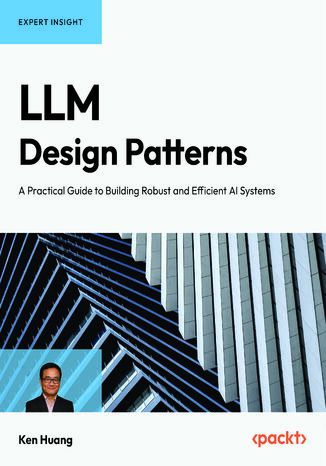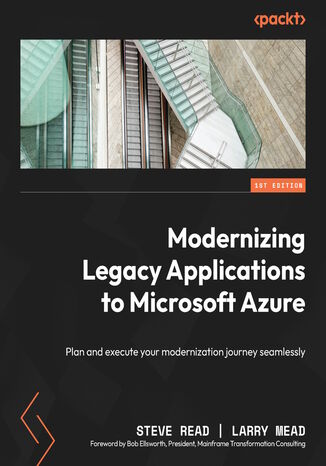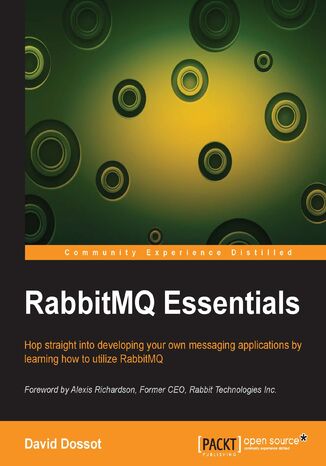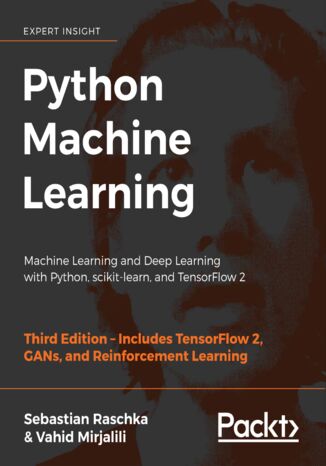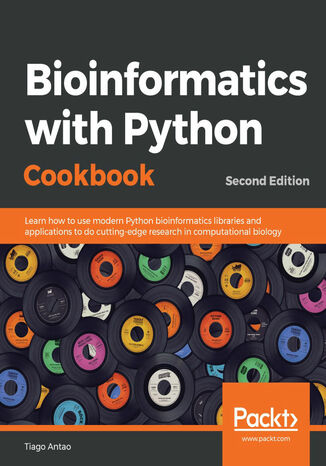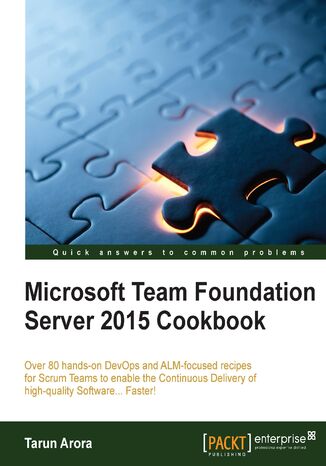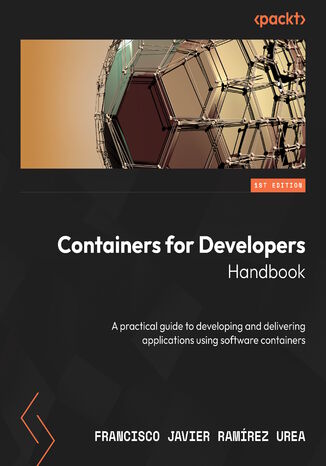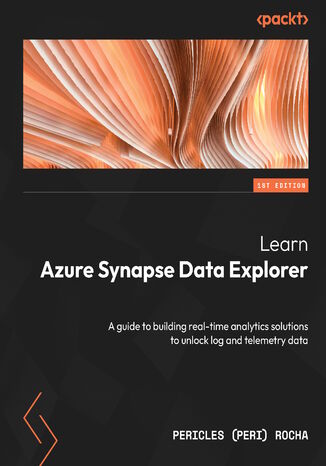Категорії
Електронні книги
-
Бізнес та економіка
- Біткойн
- Ділова жінка
- Коучинг
- Контроль
- Електронний бізнес
- Економіка
- Фінанси
- Фондова біржа та інвестиції
- Особисті компетенції
- Комп'ютер в офісі
- Комунікація та переговори
- Малий бізнес
- Маркетинг
- Мотивація
- Мультимедійне навчання
- Нерухомість
- Переконання та НЛП
- Податки
- Соціальна політика
- Порадники
- Презентації
- Лідерство
- Зв'язки з громадськістю
- Звіти, аналізи
- Секрет
- Соціальні засоби комунікації
- Продаж
- Стартап
- Ваша кар'єра
- Управління
- Управління проектами
- Людські ресурси (HR)
-
Для дітей
-
Для молоді
-
Освіта
-
Енциклопедії, словники
-
Електронна преса
- Architektura i wnętrza
- Безпека життєдіяльності
- Biznes i Ekonomia
- Будинок та сад
- Електронний бізнес
- Ekonomia i finanse
- Езотерика
- Фінанси
- Особисті фінанси
- Бізнес
- Фотографія
- Інформатика
- Відділ кадрів та оплата праці
- Для жінок
- Комп'ютери, Excel
- Бухгалтерія
- Культура та література
- Наукові та академічні
- Охорона навколишнього середовища
- Впливові
- Освіта
- Податки
- Подорожі
- Психологія
- Релігія
- Сільське господарство
- Ринок книг і преси
- Транспорт та спедиція
- Здоров'я та краса
-
Історія
-
Інформатика
- Офісні застосунки
- Бази даних
- Біоінформатика
- Бізнес ІТ
- CAD/CAM
- Digital Lifestyle
- DTP
- Електроніка
- Цифрова фотографія
- Комп'ютерна графіка
- Ігри
- Хакування
- Hardware
- IT w ekonomii
- Наукові пакети
- Шкільні підручники
- Основи комп'ютера
- Програмування
- Мобільне програмування
- Інтернет-сервери
- Комп'ютерні мережі
- Стартап
- Операційні системи
- Штучний інтелект
- Технологія для дітей
- Вебмайстерність
-
Інше
-
Іноземні мови
-
Культура та мистецтво
-
Шкільні читанки
-
Література
- Антології
- Балада
- Біографії та автобіографії
- Для дорослих
- Драми
- Журнали, щоденники, листи
- Епос, епопея
- Нарис
- Наукова фантастика та фантастика
- Фельєтони
- Художня література
- Гумор, сатира
- Інше
- Класичний
- Кримінальний роман
- Нехудожня література
- Художня література
- Mity i legendy
- Лауреати Нобелівської премії
- Новели
- Побутовий роман
- Okultyzm i magia
- Оповідання
- Спогади
- Подорожі
- Оповідна поезія
- Поезія
- Політика
- Науково-популярна
- Роман
- Історичний роман
- Проза
- Пригодницька
- Журналістика
- Роман-репортаж
- Romans i literatura obyczajowa
- Сенсація
- Трилер, жах
- Інтерв'ю та спогади
-
Природничі науки
-
Соціальні науки
-
Шкільні підручники
-
Науково-популярна та академічна
- Археологія
- Bibliotekoznawstwo
- Кінознавство / Теорія кіно
- Філологія
- Польська філологія
- Філософія
- Finanse i bankowość
- Географія
- Економіка
- Торгівля. Світова економіка
- Історія та археологія
- Історія мистецтва і архітектури
- Культурологія
- Мовознавство
- літературні студії
- Логістика
- Математика
- Ліки
- Гуманітарні науки
- Педагогіка
- Навчальні засоби
- Науково-популярна
- Інше
- Психологія
- Соціологія
- Театральні студії
- Богослов’я
- Економічні теорії та науки
- Transport i spedycja
- Фізичне виховання
- Zarządzanie i marketing
-
Порадники
-
Ігрові посібники
-
Професійні та спеціальні порадники
-
Юридична
- Безпека життєдіяльності
- Історія
- Дорожній кодекс. Водійські права
- Юридичні науки
- Охорона здоров'я
- Загальне, компендіум
- Академічні підручники
- Інше
- Закон про будівництво і житло
- Цивільне право
- Фінансове право
- Господарське право
- Господарське та комерційне право
- Кримінальний закон
- Кримінальне право. Кримінальні злочини. Кримінологія
- Міжнародне право
- Міжнародне та іноземне право
- Закон про охорону здоров'я
- Закон про освіту
- Податкове право
- Трудове право та законодавство про соціальне забезпечення
- Громадське, конституційне та адміністративне право
- Кодекс про шлюб і сім'ю
- Аграрне право
- Соціальне право, трудове право
- Законодавство Євросоюзу
- Промисловість
- Сільське господарство та захист навколишнього середовища
- Словники та енциклопедії
- Державні закупівлі
- Управління
-
Путівники та подорожі
- Африка
- Альбоми
- Південна Америка
- Центральна та Північна Америка
- Австралія, Нова Зеландія, Океанія
- Австрія
- Азії
- Балкани
- Близький Схід
- Болгарія
- Китай
- Хорватія
- Чеська Республіка
- Данія
- Єгипет
- Естонія
- Європа
- Франція
- Гори
- Греція
- Іспанія
- Нідерланди
- Ісландія
- Литва
- Латвія
- Mapy, Plany miast, Atlasy
- Мініпутівники
- Німеччина
- Норвегія
- Активні подорожі
- Польща
- Португалія
- Інше
- Przewodniki po hotelach i restauracjach
- Росія
- Румунія
- Словаччина
- Словенія
- Швейцарія
- Швеція
- Світ
- Туреччина
- Україна
- Угорщина
- Велика Британія
- Італія
-
Психологія
- Філософія життя
- Kompetencje psychospołeczne
- Міжособистісне спілкування
- Mindfulness
- Загальне
- Переконання та НЛП
- Академічна психологія
- Психологія душі та розуму
- Психологія праці
- Relacje i związki
- Батьківство та дитяча психологія
- Вирішення проблем
- Інтелектуальний розвиток
- Секрет
- Сексуальність
- Спокушання
- Зовнішній вигляд та імідж
- Філософія життя
-
Релігія
-
Спорт, фітнес, дієти
-
Техніка і механіка
Аудіокниги
-
Бізнес та економіка
- Біткойн
- Ділова жінка
- Коучинг
- Контроль
- Електронний бізнес
- Економіка
- Фінанси
- Фондова біржа та інвестиції
- Особисті компетенції
- Комунікація та переговори
- Малий бізнес
- Маркетинг
- Мотивація
- Нерухомість
- Переконання та НЛП
- Податки
- Соціальна політика
- Порадники
- Презентації
- Лідерство
- Зв'язки з громадськістю
- Секрет
- Соціальні засоби комунікації
- Продаж
- Стартап
- Ваша кар'єра
- Управління
- Управління проектами
- Людські ресурси (HR)
-
Для дітей
-
Для молоді
-
Освіта
-
Енциклопедії, словники
-
Електронна преса
-
Історія
-
Інформатика
-
Інше
-
Іноземні мови
-
Культура та мистецтво
-
Шкільні читанки
-
Література
- Антології
- Балада
- Біографії та автобіографії
- Для дорослих
- Драми
- Журнали, щоденники, листи
- Епос, епопея
- Нарис
- Наукова фантастика та фантастика
- Фельєтони
- Художня література
- Гумор, сатира
- Інше
- Класичний
- Кримінальний роман
- Нехудожня література
- Художня література
- Mity i legendy
- Лауреати Нобелівської премії
- Новели
- Побутовий роман
- Okultyzm i magia
- Оповідання
- Спогади
- Подорожі
- Поезія
- Політика
- Науково-популярна
- Роман
- Історичний роман
- Проза
- Пригодницька
- Журналістика
- Роман-репортаж
- Romans i literatura obyczajowa
- Сенсація
- Трилер, жах
- Інтерв'ю та спогади
-
Природничі науки
-
Соціальні науки
-
Науково-популярна та академічна
-
Порадники
-
Професійні та спеціальні порадники
-
Юридична
-
Путівники та подорожі
-
Психологія
- Філософія життя
- Міжособистісне спілкування
- Mindfulness
- Загальне
- Переконання та НЛП
- Академічна психологія
- Психологія душі та розуму
- Психологія праці
- Relacje i związki
- Батьківство та дитяча психологія
- Вирішення проблем
- Інтелектуальний розвиток
- Секрет
- Сексуальність
- Спокушання
- Зовнішній вигляд та імідж
- Філософія життя
-
Релігія
-
Спорт, фітнес, дієти
-
Техніка і механіка
Відеокурси
-
Бази даних
-
Big Data
-
Biznes, ekonomia i marketing
-
Кібербезпека
-
Data Science
-
DevOps
-
Для дітей
-
Електроніка
-
Графіка / Відео / CAX
-
Ігри
-
Microsoft Office
-
Інструменти розробки
-
Програмування
-
Особистісний розвиток
-
Комп'ютерні мережі
-
Операційні системи
-
Тестування програмного забезпечення
-
Мобільні пристрої
-
UX/UI
-
Веброзробка, Web development
-
Управління
Подкасти
LLM Design Patterns. A Practical Guide to Building Robust and Efficient AI Systems
This practical guide for AI professionals enables you to build on the power of design patterns to develop robust, scalable, and efficient large language models (LLMs). Written by a global AI expert and popular author driving standards and innovation in Generative AI, security, and strategy, this book covers the end-to-end lifecycle of LLM development and introduces reusable architectural and engineering solutions to common challenges in data handling, model training, evaluation, and deployment.You’ll learn to clean, augment, and annotate large-scale datasets, architect modular training pipelines, and optimize models using hyperparameter tuning, pruning, and quantization. The chapters help you explore regularization, checkpointing, fine-tuning, and advanced prompting methods, such as reason-and-act, as well as implement reflection, multi-step reasoning, and tool use for intelligent task completion. The book also highlights Retrieval-Augmented Generation (RAG), graph-based retrieval, interpretability, fairness, and RLHF, culminating in the creation of agentic LLM systems.By the end of this book, you’ll be equipped with the knowledge and tools to build next-generation LLMs that are adaptable, efficient, safe, and aligned with human values.
Steve Read, Larry Mead, Bob Ellsworth
Organizations have varying circumstances, objectives, and prerequisites when contemplating a hyper-scale cloud solution transformation to a platform such as Azure. Modernizing Legacy Applications to Microsoft Azure uncovers potential scenarios and provides choices, methodologies, techniques, and prospective possibilities for transitioning from legacy applications to the Microsoft Azure environment.You’ll start by understanding the legacy systems and the main concerns regarding migration. Then, you’ll investigate why distributed architectures are compelling and the various components of the Azure platform needed during migration. After that, you’ll explore the approaches to modernizing legacy applications and the Rs of modernizing (i.e., rehost, refactor, rearchitect, and retire). You’ll also learn about integration approaches and potential pitfalls.By the end of this book, you’ll be well equipped to modernize your legacy workloads while being aware of pitfalls and best practices.
Sebastian Raschka, Vahid Mirjalili
Python Machine Learning, Third Edition is a comprehensive guide to machine learning and deep learning with Python. It acts as both a step-by-step tutorial, and a reference you'll keep coming back to as you build your machine learning systems.Packed with clear explanations, visualizations, and working examples, the book covers all the essential machine learning techniques in depth. While some books teach you only to follow instructions, with this machine learning book, Raschka and Mirjalili teach the principles behind machine learning, allowing you to build models and applications for yourself.Updated for TensorFlow 2.0, this new third edition introduces readers to its new Keras API features, as well as the latest additions to scikit-learn. It's also expanded to cover cutting-edge reinforcement learning techniques based on deep learning, as well as an introduction to GANs. Finally, this book also explores a subfield of natural language processing (NLP) called sentiment analysis, helping you learn how to use machine learning algorithms to classify documents.This book is your companion to machine learning with Python, whether you're a Python developer new to machine learning or want to deepen your knowledge of the latest developments.
Bioinformatics is an active research field that uses a range of simple-to-advanced computations to extract valuable information from biological data.This book covers next-generation sequencing, genomics, metagenomics, population genetics, phylogenetics, and proteomics. You'll learn modern programming techniques to analyze large amounts of biological data. With the help of real-world examples, you'll convert, analyze, and visualize datasets using various Python tools and libraries.This book will help you get a better understanding of working with a Galaxy server, which is the most widely used bioinformatics web-based pipeline system. This updated edition also includes advanced next-generation sequencing filtering techniques. You'll also explore topics such as SNP discovery using statistical approaches under high-performance computing frameworks such as Dask and Spark.By the end of this book, you'll be able to use and implement modern programming techniques and frameworks to deal with the ever-increasing deluge of bioinformatics data.
Team Foundation Server (TFS) allows you to manage code repositories, build processes, test infrastructure, and deploy labs. TFS supports your team, enabling you to connect, collaborate, and deliver on time. Microsoft's approach to Application Lifecycle Management (ALM) provides a flexible and agile environment that adapts to the needs of your team, removes barriers between roles, and streamlines processes.The book introduces you to creating and setting up team projects for scrum teams. You'll explore various source control repositories, branching, and merging activities, along with a demonstration of how to embed quality into every code check-in. Then, you'll discover agile project planning and management tools. Later, emphasis is given to the testing and release management features of TFS which facilitate the automation of the release pipeline in order to create potentially shippable increments. By the end of the book, you'll have learned to extend and customize TFS plugins to incorporate them into other platforms and enable teams to manage the software lifecycle effectively.
Developers are changing their deployment artifacts from application binaries to container images, giving rise to the need to build container-based apps as part of their new development workflow. Managing an app’s life cycle is complex and requires effort—this book will show you how to efficiently develop, share, and execute applications.You’ll learn how to automate the build and delivery process using CI/CD tools with containers as container orchestrators manage the complexity of running cluster-wide applications, creating infrastructure abstraction layers, while your applications run with high availability, resilience, and persistence. As you advance, you’ll develop, test, and debug applications on your desktop and get them ready to run in production with optimal security standards, using deployment patterns and monitoring tools to help identify common issues. You’ll also review deployment patterns that’ll enable you to solve common deployment problems, providing high availability, scalability, and security to your applications. Finally, you’ll explore different solutions to monitor, log, and instrument your applications as per open-source community standards.By the end of this book, you’ll be able to manage your app’s life cycle by implementing CI/CD workflows using containers to automate the building and delivery of its components.
Large volumes of data are generated daily from applications, websites, IoT devices, and other free-text, semi-structured data sources. Azure Synapse Data Explorer helps you collect, store, and analyze such data, and work with other analytical engines, such as Apache Spark, to develop advanced data science projects and maximize the value you extract from data.This book offers a comprehensive view of Azure Synapse Data Explorer, exploring not only the core scenarios of Data Explorer but also how it integrates within Azure Synapse. From data ingestion to data visualization and advanced analytics, you’ll learn to take an end-to-end approach to maximize the value of unstructured data and drive powerful insights using data science capabilities. With real-world usage scenarios, you’ll discover how to identify key projects where Azure Synapse Data Explorer can help you achieve your business goals. Throughout the chapters, you'll also find out how to manage big data as part of a software as a service (SaaS) platform, as well as tune, secure, and serve data to end users.By the end of this book, you’ll have mastered the big data life cycle and you'll be able to implement advanced analytical scenarios from raw telemetry and log data.

